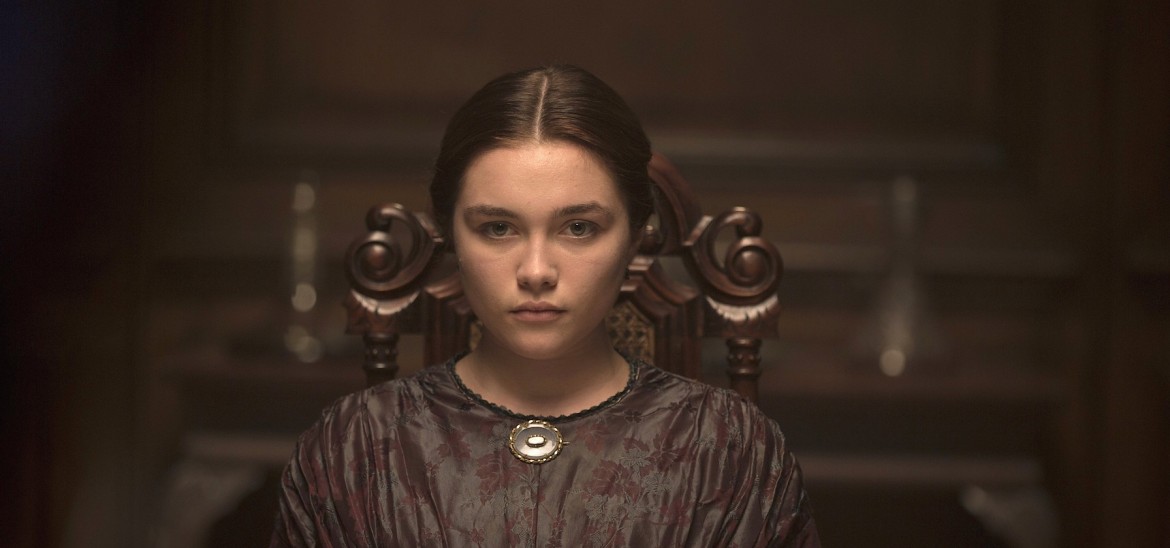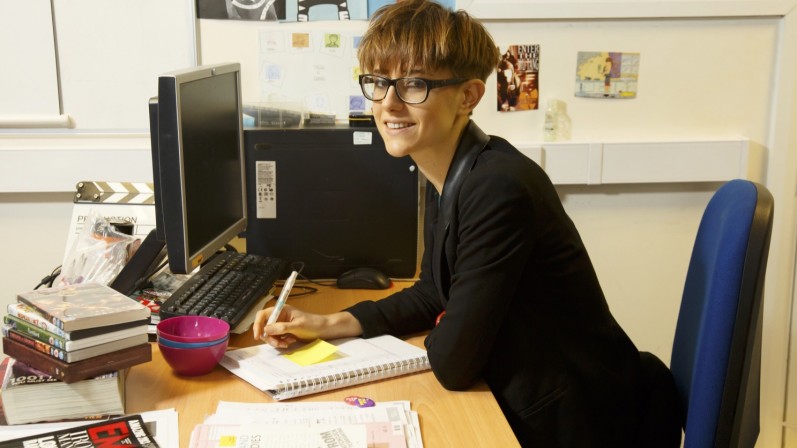Into Film Clubs
Find out everything you need to know about starting an Into Film Club.



Adapted from a 19th century Russian novella by Nikolai Lestov, Lady Macbeth is an engrossing, chilling and provocative period drama about illicit love and life in rural communities. Relocated to the North of England, it tells the story of Katherine, a young woman forced into a loveless marriage to a much older aristocrat. Imprisoned in a cold and stark house, with her husband away for long periods of time, she begins a passionate affair with Sebastian, a man working on the estate. This unleashes a powerful force inside her, and when rumours begin to spread about her activity, she stops at nothing to get what she wants and maintain her social position.
This is director William Oldroyd's first feature film. Like Sam Mendes, Joe Wright, Kenneth Branagh and Phyllida Lloyd before him, Oldroyd has transitioned into film after beginning his career as a theatre director, continuing a long established tradition linking the stage and screen in British cinema. Screenwriter Alice Birch also has an established career in the theatre, and discovered the nineteenth-century Russian novella Lady Macbeth of the Mtsenk. The pair worked together to bring the strikingly complex character of Katherine to the screen. They were particularly drawn to how different she was from traditional female characters in the literature of the period - Katherine is a boisterous, independent and ultimately monstrous character to spend time with.
The film did not have the benefit of the large budget typically associated with period dramas. Instead, the filmmakers had to make compromises in order to keep the project within the confines of their funding. Rather than allow this to stifle their creativity, it was embraced, demanding a more dynamic approach to all elements of the filmmaking process, including costumes, production design and musical score.
Shot almost entirely at the same location in Durham, production was confined to the same few spaces and rooms. This became an advantage, as the production design could be treated in much the same way as a theatre set, and left in place day-in-day-out; something which really benefited the rehearsal process. Without the availability of huge ballrooms and dozens of extras, the filmmakers were also able to focus in on the characters' psychological complexity. William Oldroyd and Florence Pugh (who plays Katherine) told our young reporter that this even extended to recording her character's breathing, so that the audience would be totally in her head, to such an extent that they might not even be aware of it. This was to achieve a rare intimacy between audience and character, again reminiscent of a stage production. The musical score is also extremely minimalist, adding more nuance to the film's exploration of character and avoiding the emotional manipulation that can come about as a result of more lavish orchestral pieces.
Although it is a genre that has always been associated with British cinema, period dramas are often reduced to clichéd approaches to storytelling and are accused of being rather safe and conservative artistic projects. Lady Macbeth is one of a number of films seeking to challenge this notion, forcing audiences to rethink what they associate with the genre and their knowledge of history. With its atmospheric visuals, the film has much in common with Andrea Arnold's blustery and intense Wuthering Heights, while Sally Potter's Orlando is also notable for the complexity of its female lead and striking imagery. Joe Wright, meanwhile, adapted another Russian novel, Anna Karenina, in highly theatrical style in 2012, and Whit Stillman made audiences rethink Jane Austen with his biting Love & Friendship in 2016.
With barbed Northern accents rather than the clipped English often heard in films of this genre, there is also a strong class element to the story. This theme is further developed through the introduction of a racial dynamic: Sebastian is mixed race, and Katherine's maid, Anna, is black. Not explicitly drawn on in the script, the film very subtly engages the audience with these themes and challenges once again our ideas of the genre and history of the time. For example, the nineteenth-century abolitionist movement was particularly prevalent in the North-East of England, due to the area's significant population of people of African-descent, many of whom worked as servants in aristocratic homes.
Despite its title, the story has nothing to do with Shakespeare. Lestov felt that Katherine resembled Lady Macbeth as a woman filled with "direst cruelty". Oldroyd told us there are other parallels - Katherine and Lady Macbeth are both strong, manipulative women, and Katherine encourages Sebastian to carry out certain acts in a similar way to Lady Macbeth coercing Macbeth. There is also a common theme of the psychological impact of sleeplessness, but ultimately the two stories are very different tales. The filmmakers were instead keen to emphasise how seemingly normal people can be capable of evil, not just highly theatrical stage characters.
At the film's centre is Florence Pugh as Katherine. Having established herself in Carol Morley's equally probing The Falling, she delivers a performance or remarkable poise, establishing herself as a young British star of the future reminiscent of a young Kate Winslet. As our interview below draws out, her performance makes the character a joy to watch, and the audience want to spend time with her, even as she is committing increasingly heinous acts. A wonderful showcase for one of Britain's finest young actors, we hope that this leads to more filmmakers developing stories with strong, independent, and complicated women at their centre, and encourages more films that challenge audiences' perception of what we think of as period drama and how we approach British history.
Discover more in our podcast.
Hear more from the Curation Team in our Into Film Recommends Podcast Series. Also available on itunes
Viewing 4 of 4 related items.

Get in touch with your article ideas for the News and Views section.